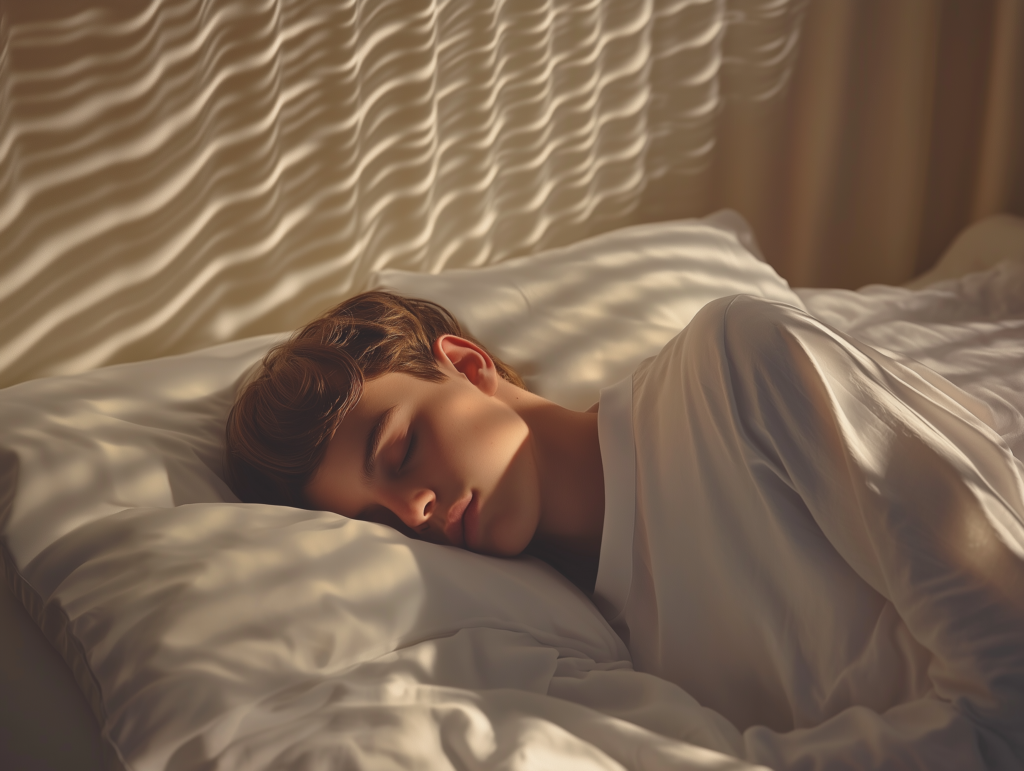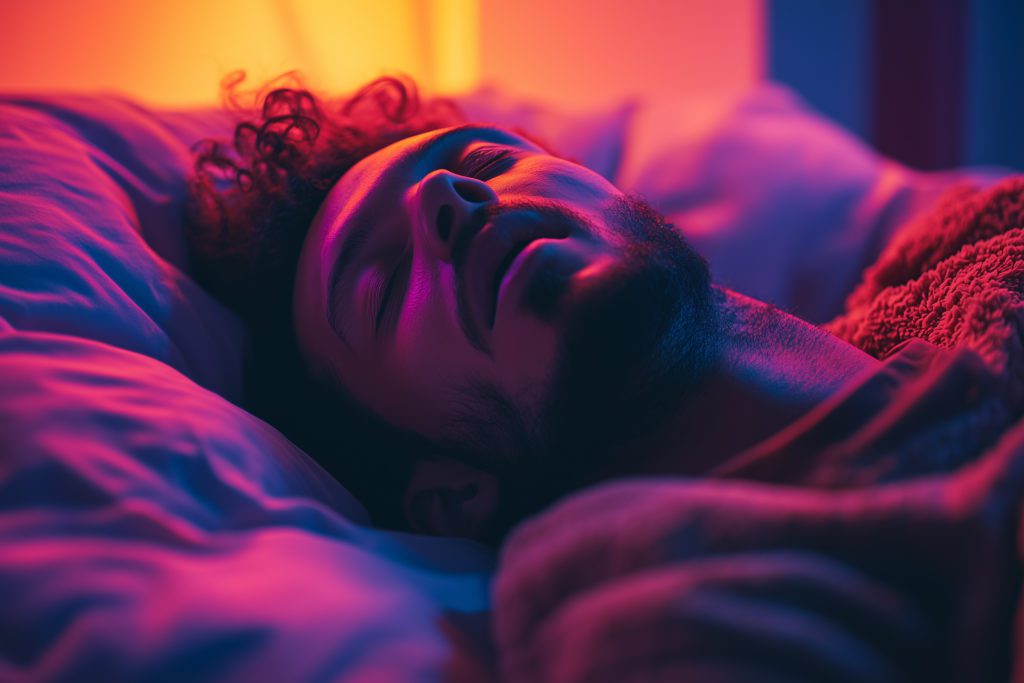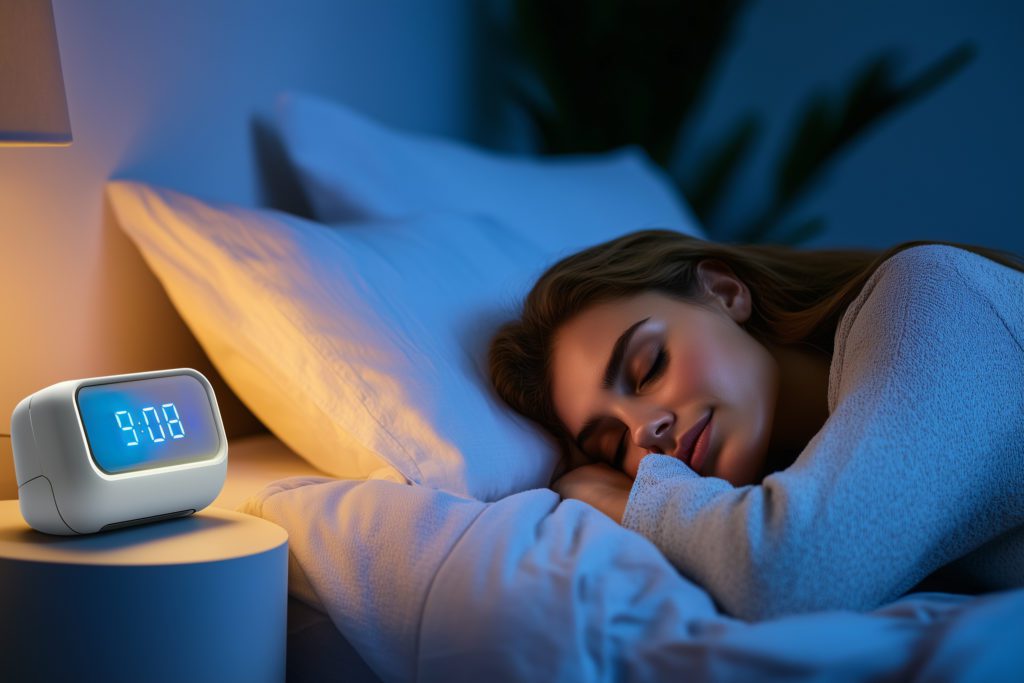
The Short Sleep Gene: Less Sleep, More Energy
Ever feel like a few hours of sleep is all you need? You might have the short sleep gene. Learn how this genetic quirk could be shaping your sleep patterns.

Are you still bright-eyed and bushy-tailed—even after just a few hours of sleep? While the majority of us often struggle to peel ourselves out of bed (and most likely rely on a morning caffeine kick to get us going), you may just have something that we don’t: a genetic edge known as the “short sleep gene”.
This blog digs into how this gene affects people, potentially letting them get by on less sleep without dragging through their days. We’ll explore the impact of this genetic variant on sleep quality and daily functioning. So if you're intrigued about why sleep needs vary so much from person to person, stick around!
What is the short sleep gene?
Fired up on just a few hours of sleep? You may be genetically tuned that way, thanks to something called the "short sleep gene", known scientifically as hDEC2. This gene came into the spotlight after researchers noticed some people could do just fine on way less sleep than most of us need. It turns out, these "short sleepers" have a genetic mutation that lets them feel completely rested with fewer hours under the covers.
According to Cleveland Clinic, short sleepers naturally:
- Don’t need to use an alarm clock
- Fall asleep easily when they go to bed
- Feel good and have plenty of energy, even after just a few hours of sleep
But what's really interesting about this gene is how it tweaks the body's sleep-wake cycle. It not only reduces the amount of sleep one needs—it does so without the usual side effects of sleep deprivation, like feeling grumpy or foggy. People with this gene keep their cognitive sharpness, maintain a good mood, and overall stay pretty healthy, all while logging less sleep time (usually less than six and a half hours is enough).
Research into this gene has also suggested that it might make sleep more efficient, essentially packing more restorative power into less time. This genetic twist shows us how varied sleep needs can be. It might even lead to new ways to tackle sleep disorders. Aren’t genetics fascinating?
Is it quality over quantity for short sleepers?
The short sleep gene not only changes how long people sleep for—it also affects how well they sleep. Consider it a case of quality over quantity, where less sleep doesn't mean worse sleep.
Studies tracking sleep patterns of individuals with the short sleep gene show they often experience highly efficient sleep. This means they reach the restorative phases of sleep—like deep sleep and REM sleep—faster. Once there, they maintain these states more effectively than the average sleeper.
Interestingly, these "short sleepers" report fewer sleep disturbances and higher overall sleep satisfaction. This is crucial because it suggests that the short sleep gene could be enhancing the body’s ability to perform necessary repair and restoration in less time. While most of us need around seven to nine hours of sleep to feel fully functional the next day, these individuals achieve the same restfulness in substantially shorter durations.
This efficiency might explain why people with the short sleep gene don't suffer the typical consequences of sleep deprivation, such as irritability, daytime sleepiness, or cognitive decline. Their bodies are adapted to maximize the benefits of every minute of sleep, suggesting that our genetic makeup plays a significant role in determining our ideal sleep requirements. This insight not only broadens our understanding of sleep health but also hints at personalized sleep strategies in the future.
Short sleep syndrome superpower
Carrying the short sleep gene might seem like a superpower, or to some of those who experience it, a gift. Imagine getting by on just five or six hours of sleep and waking up raring to go—more time for work, hobbies, or enjoying those quiet early morning hours. Those with this gene typically report feeling sharp and energized, sidestepping the grogginess that plagues the rest of us if we skimp on sleep.
But there are some unanswered questions, particularly about its long-term health effects. While these individuals don't suffer the immediate consequences of cutting sleep short, like irritability or sluggishness, we're still in the dark about potential impacts on things like heart health or lifespan. That said, current research does not suggest that there are any harmful long-term effects of this genetic rarity.
In essence, while the short sleep gene offers some intriguing advantages, it also brings with it some unanswered questions about long-term health impacts. This genetic trait provides more waking hours in the day—but at what cost to long-term well-being? Only more research will tell.
Genetic breakthroughs in sleep science
The world of sleep genetics is buzzing with new findings, particularly with the discovery of the short sleep gene. This little genetic tweak has opened up exciting possibilities, showing us that sleep isn't one-size-fits-all. It turns out, some people are wired to feel great on less sleep, which could make a real difference in how we treat sleep issues in the future.
Tailoring sleep therapies to fit our genetic makeup? This is where science is heading. Insights from the short sleep gene are inspiring researchers to develop treatments that fine-tune our internal clocks, aiming to enhance sleep quality without the grogginess often associated with traditional sleep aids.
We're not just talking about fixing sleep problems; we're talking about revolutionizing how we sleep. The potential here is huge, hinting at a future where our sleep could be as customized as our choice of morning brew. This is an exciting time for sleep science, offering a sneak peek into a future where everyone might get their best night's sleep, every night.
Could you have the short sleep gene?
So, could you be one of those enviable people who thrive on less sleep? After exploring how the short sleep gene shapes our sleep patterns and overall health, it’s fascinating to see just how much our genes play a part in our sleep durations.
If you’re curious about your own sleep needs, using a sleep-tracking app can be a great tool. These apps help you monitor your sleep duration and quality, offering insights into whether you're getting the right amount of restorative sleep—or whether you might be one of the lucky few who naturally needs less. It's a thrilling time for sleep scientists, with genetic insights promising more personalized approaches to improving our sleep and, by extension, our health.

Written by
Georgia Austin
Professionally trained copywriter, editor, and content marketing strategist with over 7 years of experience—working with brands like Nike, Siemens, Toshiba, Tommy Hilfiger, Culture Trip, and Klook.
Download Pillow
Get help
Press & News
Legal
Connect
X (Twitter)
Company
Copyright © Neybox Digital Ltd.



